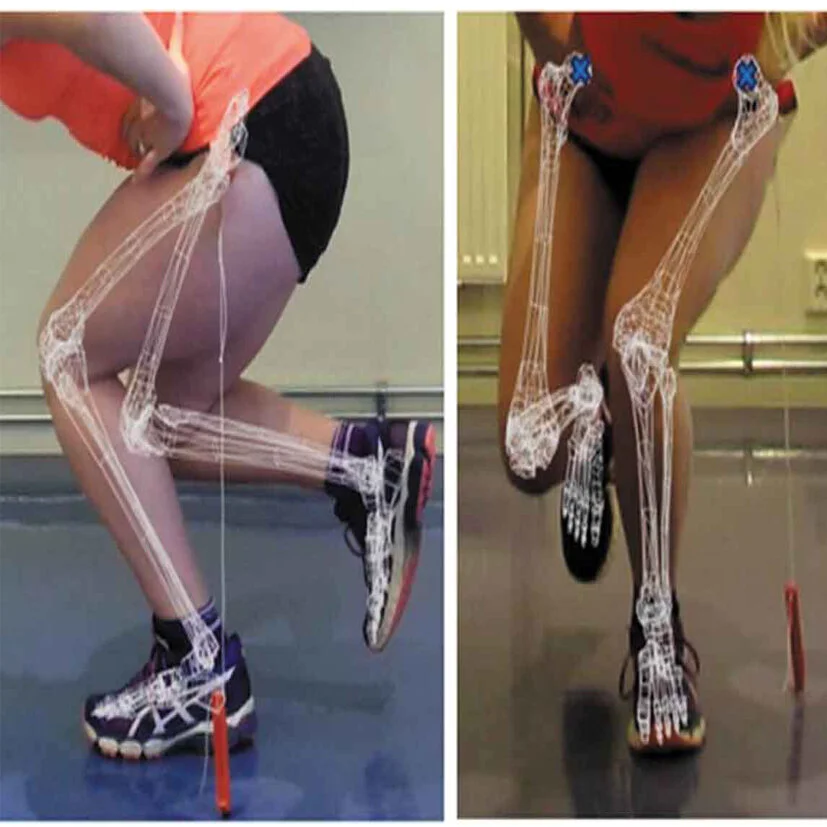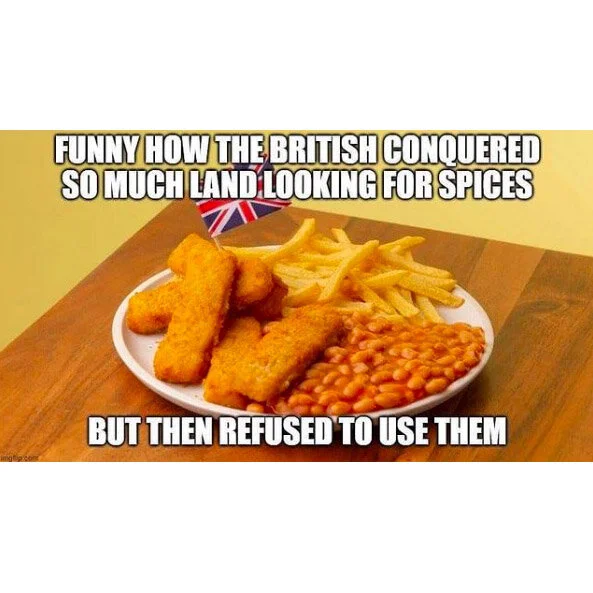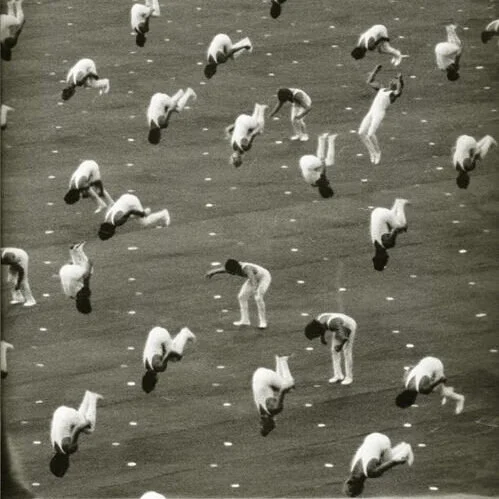Prevention Is Better Than Cure | Why Faith Alone Cannot Save You
There is a huge gap between what the public and what current research is revealing about health. Sure, it’s easier to blame our genes than to recognise how our lifestyle choices affect the epigenetic expression of our genes. This fatalism has created a sense that we are victims to the whims around us; as we supposedly have little control over the illnesses that afflict us, we can chalk it down to bad luck when a disease strikes.
Epidemics require:
(1) a virulent pathogen,
(2) a susceptible host, and
(3) environmental conditions suited to the spread of disease.
Without any one of these three ingredients, epidemics fizzle.
There is more we can do to protect susceptible hosts and much more we can do to limit environmental conditions that favour disease transmission.
- Robert M. Macrae
One of the issues I’ve seen highlighted over these Covid months has been the idea that our health is first and foremost our responsibility. We will one day have to face the consequences of our choices that accumulate over the years. We cannot outsource our health to others and expect them to fix the conditions we helped create. If we choose to live on highly processed food, never exercise or are chronically stressed then there will be a reaction to these inputs. Of course illness, injury and disease can strike out of the blue; but not always and it’s not helpful to consider ourselves purely victims of circumstance.
We need to develop an ability to look our habits and behaviour square on and understand that our problems now may have arisen as a direct result of our past choices; this means we can also alter them in the future. Framing ourselves as a victim also requires that we need to be saved by something or someone which may be why so many are pinning their hopes on a vaccine to mark the end of this situation, allowing them to move on with their lives.
This blind faith in Scientism neglects to take into consideration the substantial amount of environmental pollution the manufacture of drugs creates. Wouldn’t it be better for us and the environment if we concentrated on preventing illness and disease from happening in the first place?
Is there Connection between obesity and Susceptibility to Covid-19?
Regarding the current Covid situation, we are still in the exploratory phase; data will be pored over and analysed for decades to come, however there’s research coming in which is highlighting how obesity may double the risk of needing hospitalisation for COVID-19. Scientists from Glasgow University reviewed data from more than 400,000 people and found as body mass index increased, so did the risk of having a severe case of Covid-19. The UK has one of the highest rates of obesity in the world and this may point towards the high Covid-19 death toll, with more than 1 in 4 (28.1%) adults obese and nearly 2 out of 3 (63.4%) overweight.
Another study released this month discusses how Covid-19 patients who were younger than 60 and had a body mass index BMI between 30 and 34 were twice as likely as their non-obese peers to be admitted to the hospital for acute care instead. A report from a team of NYU doctors and researchers examined the factors that appeared to predispose 4,103 COVID-19 patients of all ages to hospitalisation. The preliminary (and not yet peer-reveiewed) study found that being older than 75 was the most potent predictor of hospitalisation for COVID-19, followed by being between the ages of 65 and 75. The third-best predictor was having a BMI over 40, a condition doctors call ‘severe obesity.’ When all other factors were held equal, Covid-19 patients with severe obesity were more than 6 times more likely to be hospitalized than were patients who were not obese.
Dr. Steven Kitchen is the chief medical officer at Phoebe Putney Memorial Hospital in Atlanta told the local newspaper that “a disproportionate percentage of our critically ill patients in our ICUs are morbidly obese.’’
On May 15th, NHS England published a breakdown of deaths by pre-existing conditions and of the 22,332 patients who died since March 31st, when pre-existing conditions began to be reported, some 5,873 (26%) of patients had diabetes. This amounts to a quarter of UK Covid-19 fatalities had diabetes. The risk of developing Type 2 diabetes if you are obese is 5 times higher than if you are a normal weight, according to a 2015 report by NHS England; Diabetes.co.uk states that ‘obesity is believed to account for 80-85% of the risk of developing type 2 diabetes, while recent research suggests that obese people are up to 80 times more likely to develop type 2 diabetes than those with a BMI of less than 22’.
Diabetes costs approximately £23.7 billion in the UK in 2010/11, including both direct and indirect costs and is projected to cost £39.8 billion overall by 2035/36. Barbara Young, the chief executive of Diabetes UK, noted that “almost four-fifths of NHS diabetes spending goes on treating complications that in many cases could have been prevented. The failure to do more to prevent these complications is both a tragedy for the people involved and a damning indictment of the failure to implement the clear and recommended solutions.”
Health Is Not A Social Construct
The Daily Mail has reported that ‘Boris Johnson is planning a war on obesity after deciding his own touch-and-go battle with Covid-19 was exacerbated by him being overweight’. Under his plan, the Government will invest in ‘preventative and personalised solutions’ to help people lose weight and live more active lives. It remains to be seen what this ‘drive’ will look like and whether it will take into account the other systemic factors that contribute to the UK being the fattest people in Europe. Personal choices and accountability have their place but so too do Corporate ones which affect all of our lives.
Prevention and supporting good health matters at every stage of life. It matters in the decisions taken by our parents before we are born, and in decisions we make throughout our lives. If we embrace opportunities to live well, we maximise our chances of a long, happy and fulfilled life.
- Department of Health and Social Care, November 2018
With more than half of the British Diet consisting of ultra-processed food created by large companies, we need to understand the inherent conflicts of interest between public health and corporations that profit from unhealthy food. Despite the often-touted claims that these corporations ‘self-regulate’, it is difficult to see how that is possible when growth and profit is their primary goal (the top priority for Boards of Directors is to maximise shareholder wealth).
We also see no obvious, established, or legitimate mechanism through which public health professionals might increase Big Food's profits.
- Big Food, Food Systems, and Global Health
Irrespective of Party Politics and Political allegiances, an interventionist approach is needed to tackle the growing problems that are connected to our unhealthy lifestyles. I personally don’t agree with the all-too-familiar trick of simply hiking taxes on ‘bad’ food and putting it at the door of us as individuals to make sensible choices, but instead to employ a ‘full-spectrum’ approach which takes into account many aspects such as easy access to local food (via farmers, markets, high street shops that are affordable, box schemes), schools teaching cooking, meal planning and budgeting, affordable healthy food choices in places like petrol stations and near workplaces. These are just a few thrown out there, off the top of my head but there’s likely to be many creative positive solutions that we can employ.
to be a victim you need a villain
A victim walks around with open wounds and pretends to be innocent. They feel betrayed and disappointed. They want other people to take charge of their life. When no one does, they feel disappointed. They tend to spend time with people who feel just like them.
With the gradual infantilisation of culture expressed in ideas such as safe spaces and trigger warnings, we have reacted totally differently than in 1968 when the Hong Kong Flu paid and visit and 80,000 Britons died. We have retreated into safety, waiting to be told it’s OK to come out and that our lives are allowed to resume again as the threat has passed.
An archetype is a repeating behavioral pattern that becomes infused in cultural and social structures. When a pattern is repeated often enough it becomes universal and serves as a template from which it perpetuates itself. Archetypes are neither good nor bad. They are neutral patterns. If you are unconscious of your behavior then that archetype is operating in the shadow, just beyond your awareness. Bringing them to your awareness transforms the pattern...Each of us has a set of patterns or archetypes that make up what we call “our personality.” They are embedded far deeper into our psychic makeup than simple personality features and they shape who we are, who we can become and how we express our unique selves in the world at large.
- Susanna Barlow
Archetypes were a concept introduced by the Swiss psychiatrist Carl Jung, who believed that they were models of people, behaviors, or personalities. Archetypes, he suggested, were inborn tendencies that play a role in influencing human behavior and he developed his personality archetypes through studying the myths, stories and symbols of many different cultures.
The snowflake generation has morphed into a snowflake nation
PSYCH-K facilitator Jena Sophia wrote this following IG post which succinctly sums up the present situation we are experiencing:
If you don’t have sovereignty over your own mind and the thoughts you have, you are not in control of your life. Without control of your mind, you will be easily programmed, manipulated and live from a fear based reality.
Two types of people:
1. Those who feel like they are in control of their lives
2. Those who feel like they are out of control.
Health
-Fear of getting sick
-Increase in fear of death
-Fear of large public places
-Illusion of not being in control of your immunity
-Increase in anxiety/depression
-Increase in negative coping habits
-Thinking a vaccine will save you
Relationships
-Fear of physically being close to people
-Increase in loneliness
-Increase in our inability to trust others
-Increase in fear of being judged for doing/acting differently to others
Money
Fear of:
-An uncertain economy
-Not having a job
-Where money will come from
-Not having enough
If you’ve noticed from this list, almost everything is rooted in fear. Fear is just an illusion. Everything we experience is a perception. Your perceptions are creating your lens of reality based on every subconscious belief you have.
Conclusion
The Government reaction to Covid-19 has raised many questions about the Healthcare and the problems of focusing primarily on cure and not prevention. We need to take control of our own health and stack the deck in our favour; by being healthy we reduce the chance of developing diseases or being susceptible to infections. It is not up to the Government or Corporations to ensure we are healthy; they have their own interests which don’t always align to ours.
Decisions that are made out of fear and panic may not be the best for us in the long-term; by cultivating a critical mind and one that is open to new information we can prevent ourselves from remaining in a victim mentality and accept there is always risk and uncertainty in life and it can never be fully eliminated.
We’ve willingly traded prosperity, functionality, joy, good company and the productive futures of upcoming generations for short-term security. That’s a security narrowly defined as well: individual medical security, as opposed to the broader, more long-term security of a sound economy and a thriving community. Hysterical safety-ism is the mark of a society that has passed its peak. The West has subsided to a geriatric phase of high anxiety and low expectations.
- Lionel Shriver
People are so afraid of dying that they have forgotten how to live.
ONS data suggests that about 8,000 new people are becoming infected every week and only 0.25% of them will die, which means the current odds of dying from Covid-19 on any given day are about 1 in 3.4 million.
This is a chance to see with fresh eyes the direction we’ve been taking and step back to consider if it’s a path worth continuing on; if safety is our priority at all times then - with a 1 in 114 chance of dying in car crash - will you ever get in your car again?
REFERENCES
NHS spending on diabetes 'to reach £16.9 billion by 2035'
Frühbeck G, Baker J, L, Busetto L, Dicker D, Goossens G, H, Halford J, C, G, Handjieva-Darlenska T, Hassapidou M, Holm J, -C, Lehtinen-Jacks S, Mullerova D, O’Malley G, Sagen J, V, Rutter H, Salas X, R, Woodward E, Yumuk V, Farpour-Lambert N, J: European Association for the Study of Obesity Position Statement on the Global COVID-19 Pandemic. Obes Facts 2020;2:292-296. doi: 10.1159/000508082
Gold JA, Wong KK, Szablewski CM, et al. Characteristics and Clinical Outcomes of Adult Patients Hospitalized with COVID-19 — Georgia, March 2020. MMWR Morb Mortal Wkly Rep 2020;69:545–550. DOI: http://dx.doi.org/10.15585/mmwr.mm6918e1
Jennifer Lighter, MD, Michael Phillips, MD, Sarah Hochman, MD, Stephanie Sterling, MD, Diane Johnson, MD, Fritz Francois, MD, Anna Stachel, MPH, Obesity in patients younger than 60 years is a risk factor for Covid-19 hospital admission, Clinical Infectious Diseases, ciaa415, https://doi.org/10.1093/cid/ciaa415
Factors associated with hospitalization and critical illness among 4,103 patients with COVID-19 disease in New York City, Christopher M. Petrilli, Simon A. Jones, Jie Yang, Harish Rajagopalan, Luke F. O'Donnell, Yelena Chernyak, Katie Tobin, Robert J. Cerfolio, Fritz Francois, Leora I. Horwitz medRxiv 2020.04.08.20057794; doi: https://doi.org/10.1101/2020.04.08.20057794
Bank of England, Monetary Policy Report, May 2020
The NHS 2015 Health Survey for England
1968 flu pandemic, Kara Rogers
Big Food, Food Systems, and Global Health Stuckler D, Nestle M (2012) Big Food, Food Systems, and Global Health. PLOS Medicine 9(6):e1001242. https://doi.org/10.1371/journal.pmed.1001242
Covid 19 and the elephant in the room, Aseem Malhotra
Allan, J., Heddle, M., McKenzie, F., Webb, S., & Johnston, M. (2019, May 20). Mapping the snack and drink landscape in a large UK hospital site. https://doi.org/10.31234/osf.io/m3nwa
Rauber F, da Costa Louzada ML, Steele EM, Millett C, Monteiro CA, Levy RB. Ultra-Processed Food Consumption and Chronic Non-Communicable Diseases-Related Dietary Nutrient Profile in the UK (2008⁻2014). Nutrients. 2018;10(5):587.
Borysiewicz L. Prevention is better than cure. Clin Med (Lond). 2009;9(6):572‐583. doi:10.7861/clinmedicine.9-6-572
Prevention is better than cure: our vision to help you live well for longer, Department of Health and Social Care, 5 November 2018, This document sets out the government's vision for putting prevention at the heart of the nation's health.































What are the most common misconceptions about furniture free? Well these are my top three!